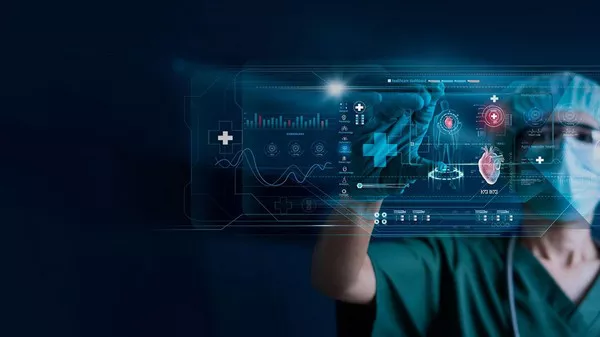The intersection of artificial intelligence (AI) and healthcare has sparked a revolution in patient care, medical processes, and health outcomes. As we advance into 2024, the integration of AI into the medical realm continues to gain momentum, with a slew of innovative medical AI tools coming to the forefront.
Here, we delve into the top 5 medical AI tools of 2024, showcasing their core capabilities and potential impact on the healthcare landscape.
Key Insights:
AI in healthcare spans from generative AI to predictive analytics and intelligent diagnostic systems, leveraging machine learning, natural language processing, and computer vision to revolutionize patient care.
The future of AI in healthcare holds promise, with the potential to tackle critical challenges, optimize resource allocation, and tailor treatment plans to individual patients.
These AI-powered medical tools streamline clinical workflows, empower healthcare professionals with data-driven insights, and enhance diagnostic accuracy, ultimately benefiting patients, providers, and the entire healthcare ecosystem.
5 Cutting-Edge Medical AI Tools of 2024
1. Merative (formerly IBM Watson Health)
Merative, a frontrunner in data analytics and technology for healthcare, has redefined its stance in 2024. With a rebranding and acquisition by Francisco Partners, Merative now stands as a standalone entity, offering a suite of AI applications tailored for healthcare providers, payers, life sciences firms, and governments.
Key Features:
Provides a diverse array of AI applications catering to various medical specialties, such as breast imaging, neurology, and musculoskeletal care.
Offers flexible deployment options, including on-premises, cloud-based, or hybrid solutions, ensuring seamless integration with existing healthcare systems.
Facilitates quick adoption with easily interpretable insights for physicians, enhancing diagnostic confidence and operational efficiency.
2. Enlitic
Enlitic revolutionizes healthcare workflows with its Curie platform, harnessing AI to standardize data, optimize workflows, and boost productivity. By addressing holistic clinical workflows, Enlitic empowers healthcare providers to unlock the full potential of their data in real-time.
Key Features:
Streamlines healthcare workflows and enhances productivity through AI-driven data normalization and real-time analysis.
Improves data quality by standardizing imaging data, leading to optimized workflows and reduced reporting times.
Enables timely interventions and informed decision-making by providing access to critical data insights.
3. Regard
Regard leverages AI to automate clinical documentation, enhance patient safety, and improve physician satisfaction. By automatically reviewing patient data and generating accurate diagnoses, Regard streamlines clinical processes and supports data-driven decision-making.
Key Features:
Automatically analyzes electronic health records (EHRs) to provide comprehensive overviews of patient health status.
Generates accurate diagnostic recommendations, enabling timely interventions and improved patient outcomes.
Creates detailed and compliant documentation, reducing administrative burdens and allowing physicians to focus on patient care.
4. Viz.ai
Viz.ai specializes in care coordination and reducing delays in healthcare through AI-driven insights. With its Viz LVO platform, Viz.ai provides real-time analysis of medical imaging, facilitating timely interventions and improving patient outcomes, particularly in stroke care.
Key Features:
Utilizes advanced algorithms to analyze medical imaging and provide real-time insights for timely interventions.
Receives FDA De Novo clearance for its computer-aided triage and notification platform, Viz LVO.
Empowers healthcare providers to make informed decisions quickly and efficiently, ultimately saving lives.
5. DeepScribe
DeepScribe revolutionizes clinical documentation with its fully automated AI medical scribe. By streamlining patient encounter documentation, DeepScribe improves physician efficiency, enhances patient care, and reduces clinical burnout.
Key Features:
Generates personalized, specialty-specific notes within seconds, improving documentation accuracy and efficiency.
Offers a suite of tools for tailoring AI scribe to specific needs, enhancing physician productivity and workflow optimization.
Facilitates seamless integration with EHR systems, ensuring compatibility and data security.
Conclusion
As the healthcare industry continues to embrace AI-powered solutions, the potential for transformative impact grows exponentially. From streamlining workflows and enhancing diagnostic accuracy to improving patient outcomes and reducing physician burnout, these top medical AI tools of 2024 herald a new era of innovation and progress in healthcare delivery. By harnessing the power of AI responsibly and collaboratively, we can pave the way for a future where healthcare is more efficient, effective, and patient-centered than ever before.



























